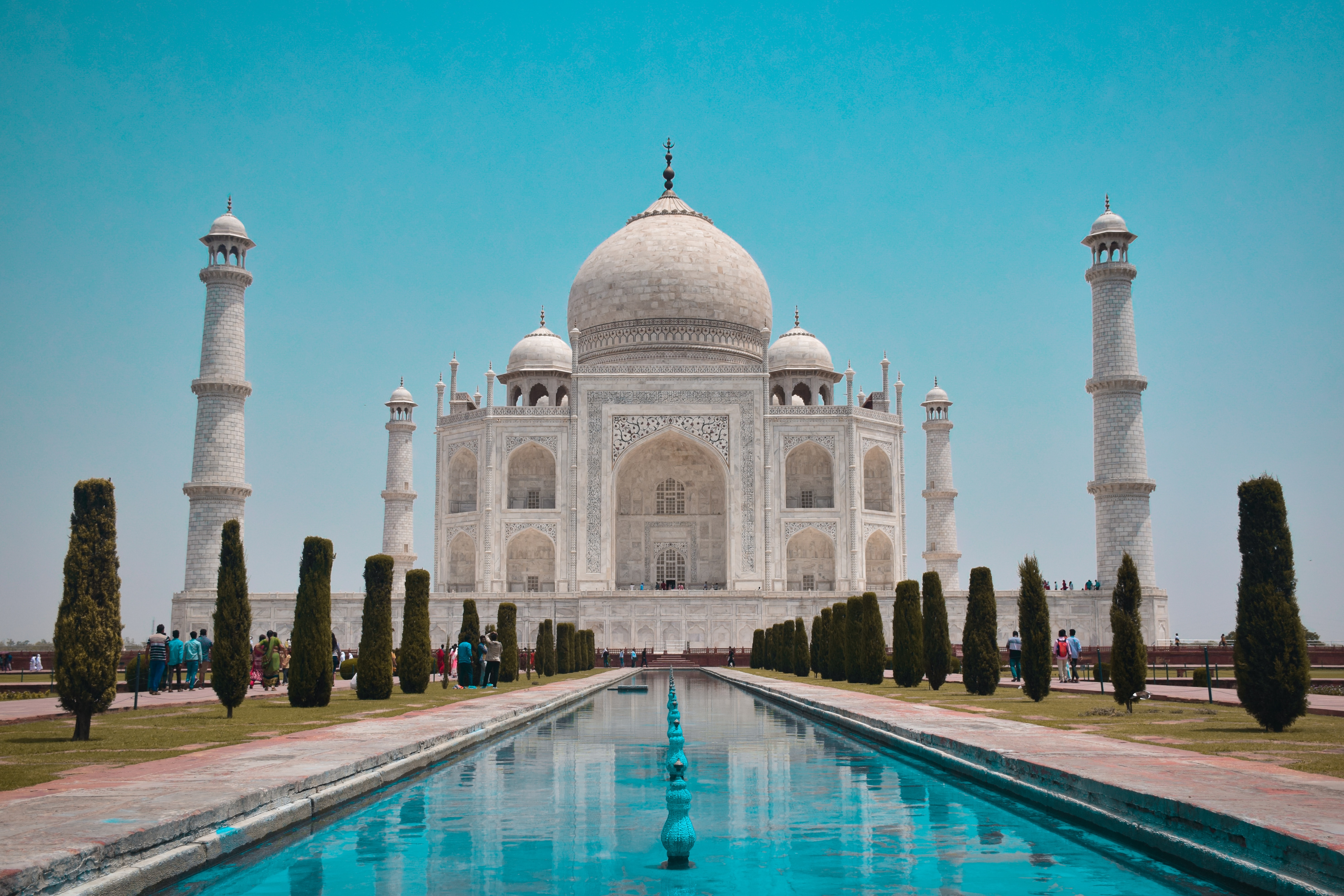A Complete gifting e-store
Techsembly is the only e-commerce platform dedicated to hospitality that supports the sale of all ancillary services from gifting, gift cards, experiences, F&B in one integrated checkout.

Travel Trends That Are Changing Hospitality in 2023
The resurgence of travel in 2023 will see travellers coming back with higher expectations, seeking bolder adventures, grander stays and luxury experiences tailored for them, rather than treated like the masses. Stay relevant with these top five travel trends that will dominate this year.
2022 saw life post-COVID return back to normal, resulting in the revival of travel. This year, with the continuation of dropping restrictions and many borders reopening in Asia, the industry will see a resurgence of travellers with a new mindset and a bigger appetite for luxury travel experiences. Guests hold higher expectations, and hoteliers will have to respond and adapt to the ever-changing landscape of travel. With that, here are the top five travel trends and behaviours that will be shaping the hospitality industry in this coming year.
1.Private Tours

The experience economy is in full swing and has been gaining momentum since last year’s tourism recovery, with no signs of stopping. The shift towards a more immersive and experiential lifestyle has changed the behaviours of consumers, prompting travellers to seek hotels that can provide them with exciting experiences that align with their interests and passions during their vacations. Personalised travel itineraries and purpose tourism such as epicurean tours, spiritual experiences and exploration quests to name a few, have become popular choices, exceeding traditional group travel tours.
Aman Hotel Group, known for its resorts located in exotic destinations, provides intimate experiences for their guests through all-inclusive staycation retreats crafted for different personality types - from foodies to wellness lovers. Meals and dietary requirements are taken care of, with activities curated and planned based on the location’s best offerings. Hotels should leverage this trend by curating experiences in-house, be it workshops or local tours which cater to different personalities, age groups and interests. Rather than working with third-party providers, providing exclusive experiences to guests not only generates steady ancillary streams of revenue but also enables the company to ensure the experiences align with the hotel’s branding, with consistent levels of customer expectations.
2.The Bleisure Traveller

A term that’s possibly going to make up the next Word of the Year - the ‘Bleisure’ traveller. As workers return to the office, the rise of digital nomads and remote workers is also here to stay. For the modern traveller, bleisure travel is the perfect mix of business and leisure. It combines the best of both worlds and allows travellers to combine their business trips with luxurious vacations, creating a unique experience at the destination of their choice, be it the beach or amongst a thriving concrete jungle. With bleisure travel, guests can now explore new places, indulge in luxurious accommodations and experience life in a new and meaningful way.
Hotels are to adapt to this new segment by optimising the guest’s stay to be able to work productively while being away from home through creating an environment that is inviting and homely, yet still, an effective workstation. Because bleisure travellers are mobile and free to roam, selecting the right accommodation that fits their purpose and provides a leisurely experience to relax and explore comes with high importance. As more people embrace this lifestyle, bleisure travel will become an increasingly popular way for people to explore new places, while still on the job. Carrying on from last year’s trend, hotels can adapt and capitalise on public spaces such as lounges, meeting rooms, and even hotel rooms as a ‘daycation’ to meet the needs of this emerging segment, coupled with free high-speed internet, ample plug sockets and great coffee.
3.Personalised Profiles

Personalisation continues and will be further elevated. Hotel travellers are increasingly looking for personalised guest experiences that can make their stay luxurious and memorable. To stay on top of and compete with other hotels, hoteliers will have to adopt a more personal approach to meet the expectations of their guests beyond the perfect pillow, dietary menu or a petalled room. Hoteliers can further increase their value creation with unique and tailored experiences that appeal to their guests and be treated as an individual, rather than the mass.
Guests highly rank establishments that provide micro-levels of customisation, such as personalised gifting and messages, private off-the-menu dining experiences and tailored excursions with tours to name a few.
A McKinsey study on Data and Personalisation revealed that companies that capture more value from data can grow faster and generate 40% more revenue through personalised sales and marketing tactics and activities. Leveraging the power of data, hotels can build up a guest profile from pre-stay to post-stay through purchases of ancillary services. With the right data, insights can provide better revenue projections and management. However, as many hotels currently manage multiple sites and vendors to support different product sales, this results in soloed and diluted data, poor customer experience and brand inconsistencies. But with a multi-product solution, hotels can generate more accurate upsells and identify consumers’ interest to craft hyper-personalised guest experiences.
4.Wellness Staycations

Wellness will still continue to be a priority for guests in 2023, evidenced by a forecasted growth of USD$1.3 trillion by 2025, with an ongoing growth rate of 21% in wellness tourism over the next three years. As travellers are increasingly seeking nature adventures and improving their mental wellbeing, hotels now cater to this segment by curating wellness experiences. Beyond traditional spa offerings - which are equally a strong revenue driver - hotels are upgrading their wellness offerings for the mind, body and soul through experiences and retreats with improved amenities for guests to reach greater spiritual and mental wellbeing. While demand for a better fitness centre and healthy food options will still occur, hotels need to make a shift towards designing more holistic packages.
Take 137 Pillars Suites & Residences Bangkok for example, its four days three nights ‘Reset, Restart, Rejoice’ wellness retreat not only includes accommodation but also specific plant-based meals with a variety of complimentary exclusive wellness activities and therapies that aims to solidify wellness into your urban lifestyle. Aside from spa days and retreats, hotels are also introducing other forms of wellness experiences, including outdoor bootcamps, Muay Thai and massage, or a personal consultation sessions which can all provide ancillary revenue, and an upgrade to the traditional tours as expected. Hotels are also going the extra length to make these wellness experiences even more personal by customising them to their individual preferences through dietary requirements, activity of choice etc. Having these services come by as luxurious features to have which helps hotels stand out from the competition, making it an attractive accommodation for those looking for unique stays and experiences in their travels.
5.Like a Local

As travellers continue to seek unique stays and experiences, global hotel groups will need to hone in on localisation, by focusing on creating experiences that support and work with locals - for example, choosing locally sourced food or decor crafted by local artisans and experiences that are unique only available within its local domain. A survey revealed that 48.5% of travellers carry an open mind to explore new cultures and experiences and are looking for experiences outside of textbook recommendations.
Capella Hotel & Resorts for example, prides itself with their Capella Culutrist services - a personal assistant and butler that will take care of guests’ every need. Capella Culturists have spent time scouring each locale they are based in, immersing into the local community to engage and discover local heritage activities. Guests can choose from an array of experiences from a massage customised by the moon cycle, or an overnight stay in the depths of the jungle in addition to extraordinary dining experiences under the stars amongst lush rice paddies. These experiences are curated from connecting with the local community to engage with local heritage and culture, and designing priceless experiences that translate into lifelong memories. Finding ways to involve the local community and making it an integral part of your hotel experience not only supports those in need but also crafts an opportunity for the hotel to create a distinctive identity.









%20-%20Landing.png)









-min.png)


















.jpg)


